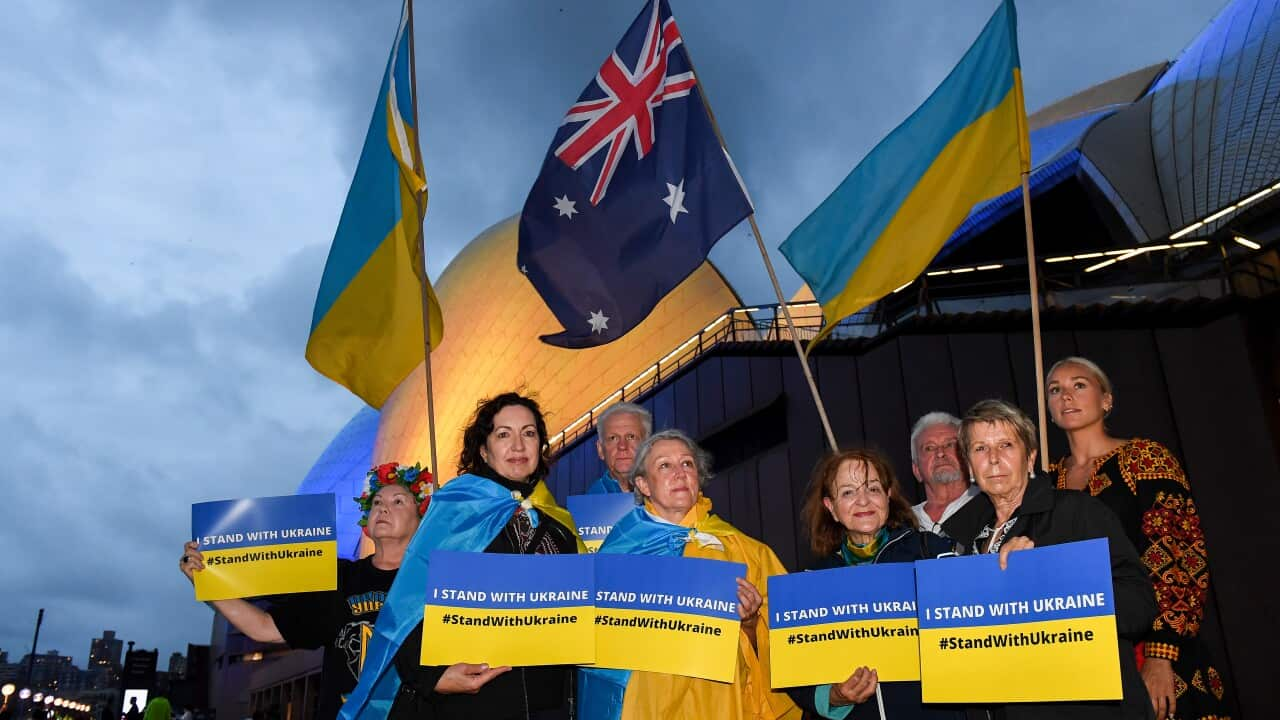Ukrainian refugees arriving in Australia will now be offered a three-year temporary humanitarian visa with access to Medicare and the ability to work and study.
Since Russia's invasion of Ukraine, Australia's immigration department has issued nearly 5,000 visas to Ukrainians, and from that group 750 have arrived in Australia to date.
The move comes after advocacy from Ukrainian Australians who said the conditions attached to the tourist visas given to the new arrivals were .
Prime Minister Scott Morrison said at this stage he is not setting a limit on how many Ukrainian refugees Australia will accept.
"We are prepared to meet the demand. We haven't set a limit on this. We will do what we need to do," he told reporters on Sunday, adding that the conflict situation makes it hard to ascertain the level of demand.
The United Nations said 3.27 million refugees have already fled Ukraine, with a further 6.48 million internally displaced within the country.
Immigration Minister Alex Hawke said $450,000 will be provided directly to the Ukrainian Australian community to assist new arrivals with the settlement process.
"And that is to recognise the fact that in coming weeks, those 5,000 people that we have announced - more and more will be arriving in more and more difficult states [of health]. And the Ukrainian community will employ people to directly support those arrivals," Mr Hawke told reporters on Sunday.
He said the federal government would work with state governments to ensure hospital and school access is provided upon arrival.
"They'll be looked after, whether it an accommodation need, whether it's a trauma need. And we are now sadly seeing people who are very traumatised by the experiences they've had."
The Australian Federation of Ukrainian Organisations (AFUO) welcomed the government's announcement.
Co-chair Stefan Romaniw said the AFUO agreed with the government there would be a "staged approach to issues".
"The first step was to remove these people - predominantly women and children - from harm's way," he said.
"Today's announcement is the next step – setting up arrangements that will allow these people to pick up their lives again on the other side of the world.
"We thank the Australian Government for swiftly bringing displaced Ukrainian people to our shores and supporting them with appropriate arrangements. By doing this, Australia is showing its support for decency, democracy, and freedom from tyranny." Mr Romaniw said.
The AFUO has created a to collect offers of temporary accommodation, household items, clothing, and medical assistance from Australian community groups.
Foreign Minister Marise Payne said Australia will be allocating a further $30 million in aid to Ukraine, bringing the total financial contribution to $65 million.
The $30 million will be provided in emergency humanitarian assistance, aimed to, particularly aid women, children, the elderly and people with disability.
The government also announced more military aid for Ukraine, confirming it will be providing a $21 million package from Australian Defence Force stocks.
Australia will donate at least 70,000 tonnes of thermal coal to help supply energy in Ukraine and it's banned exports of alumina and aluminium ores to Russia.
"This significant step demonstrates our absolute commitment to holding the Putin regime to account and we won't cease until we are doing everything we possibly can," Mr Morrison said.
This measure is designed to limit Russia's capacity to produce aluminium, which is one of Russia's critical exports.
Russia relies on Australia for nearly 20 per cent of its alumina needs.
"It is vital that we ensure that we diversify away from, and not be providing any support to Russia, particularly at a time they are invading their neighbours," Mr Morrison said.











